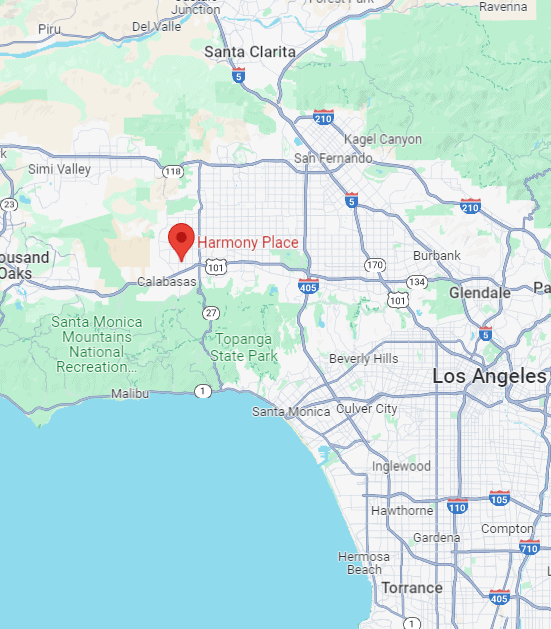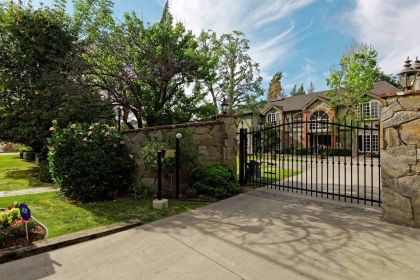How to Pay for Dual Diagnosis Treatment in Los Angeles, California
Harmony Place is a trusted dual diagnosis treatment center in Los Angeles, California, offering compassionate, evidence-based care for individuals facing both addiction and mental health challenges. We understand that financial concerns can be a barrier to recovery, which is why we provide multiple ways to pay for dual diagnosis treatment, ensuring access to quality care for every individual.
Our team helps clients explore dual diagnosis treatment payment options tailored to their unique situation, including insurance coverage, financing plans, and sliding-scale fees. Whether you’re researching how to pay for treatment for yourself or a loved one, Harmony Place makes the process transparent and supportive. Reach out today to discuss how to pay for dual diagnosis treatment in Los Angeles and take the first step toward recovery.

Ways to Pay for Dual Diagnosis Treatment if You Don’t Have Health Insurance Coverage
Finding ways to pay for a dual diagnosis center can be challenging, especially if you don’t have insurance. There are several strategies you can explore to ensure you receive treatment. From personal savings to seeking financial aid, many avenues exist to for affordable recovery. Below are some options to consider when paying for rehab without insurance.
Start Crowdfunding Campaigns for Treatment
Starting a crowdfunding campaign can effectively raise money for dual diagnosis support when traditional funding options are limited. Platforms like GoFundMe, Kickstarter, and Indiegogo allow you to share your story and request funds from friends, family, and even strangers who are moved by your situation.
Dip Into Personal Savings or Personal Loans
Using personal savings or obtaining personal loans can be a practical way to cover the costs of dual diagnosis treatment. While it may feel daunting, investing in your health is invaluable. Personal loans can provide immediate funds, and many lenders offer manageable repayment plans and alternative financing for rehab to support your affordable addiction recovery journey.
Find Treatment Assistance via Grants and Scholarships
Applying for scholarships for rehab programs and grants for addiction treatment can reduce the financial burden of dual-diagnosis counseling. Various organizations and foundations offer financial aid for substance use and mental health treatment. Research and apply for these opportunities to access the support you need for comprehensive care without overwhelming costs, making your recovery more affordable and accessible.
Ask for Help: Financial Assistance or Family Support
When facing drug rehab without insurance, reaching out for financial assistance or family support can be crucial. Family and friends may be willing to contribute to your treatment costs or help you find resources to pay for dual diagnosis centers. Don’t hesitate to ask for help; your loved ones want you to succeed in your recovery.
Find Community Resources or Charity Options
Exploring community resources or charity options can be an effective strategy for paying for dual diagnosis interventions. In New Jersey, rehab assistance programs and government assistance for rehab can provide valuable support. Many organizations offer substance abuse and mental health services at reduced costs or even for free, helping you receive the necessary care without financial strain.
Sliding Scale Supportive Programs
Sliding-scale supportive programs offer a flexible payment structure based on your financial situation, making integrated behavioral health services more accessible. Many state-funded rehab programs in New Jersey provide these options, ensuring you can receive comprehensive care without the burden of high costs. These programs are designed to support you no matter your financial background.
Flexible Payment Plans
Flexible payment plans can significantly ease the financial burden of dual diagnosis treatment. Many treatment centers offer these plans, allowing you to make manageable monthly payments. This approach ensures you can access the necessary care without overwhelming upfront costs, making focusing on your recovery journey easier.
Employee Assistance Programs (EAPs)
Employee assistance programs (EAPs) are workplace-funded benefits designed to help employees manage personal issues, including substance abuse and mental health challenges. Many companies offer EAPs that provide confidential counseling services, resources, and referrals for dual diagnosis treatment. Utilizing EAPs can effectively access support and treatment while maintaining your employment and financial stability.

Get a Call Back About Paying for a Dual Diagnosis Today

Rehab Centers in Los Angeles That Offer Dual Diagnosis Payment Plans
Embarking on your recovery journey with the right dual-diagnosis treatment at a rehab facility in Los Angeles can significantly impact your path to wellness. It’s critical to choose facilities that specialize in dual diagnosis and prioritize accessibility. Many dual diagnosis facilities have rehab payment plans and accept most insurance plans, ensuring that obtaining the necessary treatment is within reach.
Harmony Place Drug and Alcohol Treatment Center, located at 23041 Hatteras St, Woodland Hills, CA 91367, and Harmony Place East, at 22913 Burbank Blvd, Woodland Hills, CA 91367, provide comprehensive residential treatment options. Valley Restoration Center at 22900 Ventura Blvd, Ste 314, Woodland Hills, CA 91364, is available for outpatient care. These facilities are dedicated to offering integrated treatment and dual diagnosis recovery to support your path to recovery. Call us for more information on how to pay for dual diagnosis treatment.
Does Health Insurance Pay for Dual Diagnosis Treatment?
Yes, most health insurance plans pay for dual diagnosis treatment in Los Angeles, offering coverage for both mental health and substance use disorders. Because integrated care is essential for long-term recovery, many insurers recognize dual diagnosis programs as medically necessary. However, coverage levels and dual diagnosis treatment payment options can vary depending on your provider and plan.
When researching ways to pay for dual diagnosis treatment, verifying your insurance benefits is an important first step. At Harmony Place in Los Angeles, our admissions team helps clients navigate insurance verification and financial planning with ease. We can assist you in understanding your coverage, filing claims, and exploring additional payment options for dual diagnosis treatment, including flexible financing and sliding-scale plans. Contact us today to learn how your insurance can help cover care and start your recovery journey with confidence.
How to Get Health Insurance to Pay for Dual Diagnosis Treatment in Los Angeles
Navigating how to get health insurance for dual diagnosis treatment can be challenging, but it’s essential for effectively addressing comorbid conditions. Speak with your insurance company to learn about your coverage. Many policies include provisions for both mental health and substance abuse treatment, recognizing the importance of holistic recovery.
For substance abuse recovery on a budget, it’s vital to explore all available options. Many treatment centers, like ours at Harmony Place Rehab Center, help verify insurance benefits and help you understand how to pay for dual diagnosis treatment in Los Angeles. Additionally, research on sliding-scale fees, payment plans, and financial aid options can make treatment more affordable. By thoroughly exploring these resources, you can find a comprehensive treatment plan that fits your financial situation and supports your journey to recovery.

How Much Does Dual Diagnosis Treatment and Therapy Cost Without Insurance in Southern California?
Determining the cost of dual diagnosis treatment for addiction and mental health therapy in Southern California without insurance can be challenging. Understanding the financial aspects of inpatient and outpatient rehabilitation options helps you make informed decisions and find financial relief when reaching your sobriety goals.
Inpatient programs cost, lasting around 28 to 30 days, can range from $5,000 to $20,000, with an average cost of $12,500, and long-term options (60 to 90 days) increasing to between $12,000 and $60,000. Outpatient options present a more affordable alternative; general outpatient rehab costs between $1,400 and $10,000 for 30 days, while intensive outpatient care and partial hospitalization programs offer various pricing, averaging around $575 daily and $400 daily, respectively. Admission fees for some programs may add an extra $3,000 to $4,000 to these costs. However, for those seeking more affordable dual diagnosis treatment, non-profit organizations and holistic treatment centers provide support for addiction recovery and mental health therapy, helping to mitigate the financial burden.
How to Lower the Payments of Your Dual Diagnosis Recovery Treatment
Residential treatment may not always be necessary for everyone. Intensive outpatient programs (IOP) and partial hospitalization programs (PHP) are effective lower-payment options that provide comprehensive care without the high expenses associated with inpatient services. These programs offer flexible schedules, allowing you to receive treatment while maintaining daily responsibilities, making them a more affordable alternative.
To explore these options and discuss how to get insurance to pay for dual diagnosis treatment, contact us at Harmony Place Rehab Center. Our team of addiction professionals can help you understand your insurance coverage limits, find non-profit addiction support, and integrate holistic mental health treatment into your short or long-term treatment.
More Information on Dual Diagnosis, What Is it?
Dual diagnosis is where you have both a cognitive health disorder and a substance use disorder simultaneously. This co-occurrence can make treatment more complex, as both conditions often influence and exacerbate each other. Common mental health issues seen in dual diagnosis include depression, anxiety, bipolar disorder, and PTSD, alongside addiction to alcohol, drugs, or prescription medication issues.
Harmony Place Treatment Center specializes in providing integrated care for dual diagnosis. Our proven approach combines mental health and addiction treatment strategies to offer a comprehensive solution. By addressing the root causes of both conditions, we want to help you achieve a balanced and healthy life. We strive to work with you to develop a treatment plan, ensuring that both mental health and substance use issues are managed effectively.
Harmony Place: Your Partner in Navigating Payment Options for Dual Diagnosis Treatment
At Harmony Place, we understand that paying for dual diagnosis treatment can be a significant concern for individuals and their families. We are committed to helping you explore various options to finance your treatment, including insurance coverage, payment plans, and financial assistance programs.
parents.com
Our team is dedicated to providing comprehensive support to ensure you or your loved one can access the necessary care without undue financial stress. We encourage you to reach out to us to discuss your specific situation and learn more about how we can assist you in paying for dual diagnosis treatment. Your journey to recovery is our priority, and we are here to guide you every step of the way.
Statistics on Private-Pay Co-Occurring Treatment in Greater Los Angeles
Understanding the costs and statistics of private-pay co-occurring treatment in Greater Los Angeles can help you make informed decisions about your care. Whether considering inpatient or outpatient programs, knowing the financial and treatment landscape is crucial for planning your recovery journey.
For instance, residential treatment programs typically range from $5,000 to $20,000 for a 30-day stay, averaging about $12,500. Intensive outpatient programs (IOP) can cost between $1,400 to $10,000 for 30 days, averaging $5,700 monthly. Additionally, the percentage of adults aged 18 or older with a co-occurring substance use disorder and mental health issue who received either substance use treatment or mental health services was 48.6% in 2019. These statistics underscore the importance of comprehensive treatment options and the financial planning needed to access quality care.
How to Get into Co-Occurring Disorder Addiction Treatment Program in Greater Los Angeles
Entering co-occurring treatment programs for substance abuse disorders and addiction in Greater Los Angeles involves understanding your treatment needs and exploring the available options. From residential to outpatient programs, numerous facilities offer specialized care. Below are key steps and considerations to help you find the right program before paying for dual diagnosis treatment needs.
Comprehensive Assessment and Thorough Research
Before entering a co-existing disorders treatment program, it’s crucial to undergo a comprehensive assessment. This rehab evaluation, typically conducted by a healthcare professional, helps determine the extent of your mental health and substance use disorders. The assessment provides a clear picture of your needs and guides the development of a personalized treatment plan that addresses both conditions effectively.
Thorough research is essential to find a program that best suits your requirements. Investigate various treatment centers in Greater Los Angeles, considering factors such as the types of therapies offered, the qualifications of staff, and the facility’s approach to integrated care. Reading reviews, visiting facilities, and speaking with current or previous participants in the program can provide an inside look into the quality of care and the overall treatment environment. This careful research ensures you select a program that aligns with your recovery goals.
Verifying Insurance and Strategic Financial Planning
Contact your health insurance company to determine which aspects of dual diagnosis treatment are covered under your plan. Many insurance policies include benefits for mental health and substance use disorders, but the extent of coverage can vary. Confirm whether the treatment centers you’re considering are in-network and what out-of-pocket expenses you might incur.
Strategic financial planning is essential if your insurance does not cover all treatment costs or if you don’t have insurance. Explore all available financial options, including payment plans, sliding scale fees, and financial aid. Many treatment centers offer flexible payment arrangements to make care more accessible. Additionally, look into non-profit addiction treatment support and holistic mental health treatment options, which may provide affordable alternatives. Planning strategically allows you to manage the costs and focus on your recovery journey.
Conducting Initial Evaluations and Obtaining Medical Clearance
Before starting a co-occurring disorder addiction treatment program, you’ll need to undergo initial evaluations. These assessments, conducted by healthcare professionals, help identify the mental health and substance use issues you’re facing. The evaluations typically include a comprehensive mental health assessment, substance use history, and physical examination.
Obtaining medical clearance is another important step. This involves a detailed health check to ensure you are physically prepared for the treatment program. Medical clearance may include lab tests, screenings, and a medical history review. This step is used to identify any underlying health conditions that might need to be addressed alongside your treatment for co-occurring disorders. With a clear understanding of your overall health, treatment providers can create a safe and effective plan for your recovery journey.
Detailed Preparation and Streamlined Admission Process
Detailed preparation is essential for a successful entry into a co-occurring disorder addiction treatment program. Gather all necessary documentation, such as medical records, insurance information, and personal identification. Packing appropriately for your stay, including any prescribed medications and personal items, will ensure you are comfortable and ready for treatment.
A streamlined admissions process can make transitioning into treatment smoother and more efficient. Many facilities offer pre-admission assessments and consultations to expedite the process. By working closely with the admissions team, you can address any concerns or questions before your arrival, ensuring a seamless entry into the program. This proactive approach saves time and sets a positive tone for your treatment journey, allowing you to begin your path to recovery with confidence and clarity.
Getting Ready for Program Admission
Preparing for program admission requires taking practical and emotional steps to ensure a successful start to your treatment journey. Gather all necessary documents, such as identification, insurance information, and medical records. Pack essential items, including comfortable clothing, toiletries, and any prescribed medications. Arrange for personal or professional responsibilities, such as notifying your employer and arranging pet or childcare.
Emotionally, preparing for admission is just as important. Take time to prepare yourself mentally for the journey ahead. It’s normal to feel a mix of emotions, from anxiety to hope. Speak with supportive friends or family members who can offer encouragement and reassurance. Understanding that this step is crucial for your recovery can help you embrace the process positively. You set a strong foundation for a successful treatment experience by addressing both practical and emotional aspects.
Smooth Transition and Active Engagement
Effective communication and support are essential for ensuring a smooth transition into a co-occurring disorder addiction treatment program. Upon arrival, familiarize yourself with the facility and staff and participate in orientation activities. This helps you acclimate to the new environment and understand the daily routines and expectations.
Active engagement in your treatment is crucial for a successful recovery journey. Participate fully in therapy sessions, group activities, and other offered programs. Stay open to the process, ask questions, and seek clarity on any concerns. Engaging actively enhances your treatment’s effectiveness and empowers you to take charge of your recovery. By immersing yourself in the program and utilizing the available resources, you maximize the benefits of your stay and set the stage for long-term success.
Flexible Ways to Pay for Dual Diagnosis Treatment in Los Angeles, CA
Understanding the ways to pay for dual diagnosis treatment shouldn’t stand in the way of getting help. At Harmony Place, we partner with major insurance providers and offer personalized payment plans to make high-quality, integrated care accessible to those who need it most in Los Angeles and Southern California.
Our admissions team is here to walk you through every dual diagnosis treatment payment option, from insurance verification to private financing solutions. You don’t have to navigate this alone, contact Harmony Place today to learn how to pay for dual diagnosis treatment in Los Angeles, and begin your path to recovery with compassionate, expert-led support.
Financing Options for Rehab at Harmony Place
Harmony Place helps clients find ways to pay for detox, IOP, and residential programs. Learn about payment assistance for addiction and mental health treatment in Los Angeles, CA, even without insurance.
- Cost of Addiction Therapy
- Cost of Addiction Treatment
- Cost of Drug and Alcohol Aftercare
- Cost of Drug and Alcohol Detox
- Cost of Drug and Alcohol Intensive Outpatient
- Cost of Drug and Alcohol Outpatient
- Cost of Drug and Alcohol Partial Hospitalization
- Cost of Drug and Alcohol Residential Inpatient
- Cost of Dual Diagnosis Treatment
- Cost of Sober Living
- Cost of Treatment
Info and Statistics on Co-Occurring Disorder Treatment in Los Angeles
Adolescents aged 12 to 17 with co-occurring Substance Use Disorder (SUD) and Major Depressive Episode (MDE) in the past year (2019):
- 3% (263,000) received either substance use treatment at a specialty facility or mental health services.
- 5% (249,000) received only mental health services.
- 4% (10,000) received only substance use treatment at a specialty facility.
- 3% (5,000) received both substance use treatment at a specialty facility and mental health services.
Adults aged 18 or older with a co-occurring Substance Use Disorder (SUD) and Any Mental Illness (AMI) in 2019:
- 6% (4.6 million) received substance use treatment at a specialty facility or mental health services.
- 7% (3.7 million) received only mental health services.
- 8% (742,000) received both substance use treatment at a specialty facility and mental health services.
- 9% (182,000) received only substance use treatment at a specialty facility.
Adults aged 18 or older with a co-occurring Substance Use Disorder (SUD) and Serious Mental Illness (SMI) in 2019:
- 6% (2.4 million) received either substance use treatment at a rehab facility or mental health services.
- 0% (1.9 million) received only mental health services.
- 7% (452,000) received both substance use treatment at a specialty facility and mental health services.
- 9% (68,000) received only substance use treatment at a specialty facility.


















